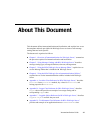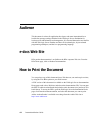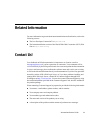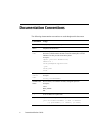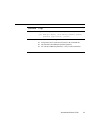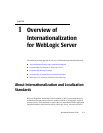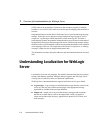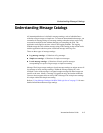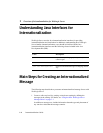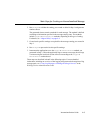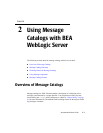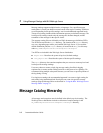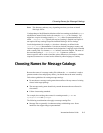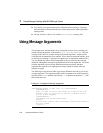
Understanding Message Catalogs
Internationalization Guide 1-3
Understanding Message Catalogs
All internationalized text is defined in message catalogs, each of which defines a
collection of log messages or simple text. To create an internationalized message, you
externalize all message strings in a message catalog so that the strings can be easily
converted to multiple locales without changing or recompiling the code. The
application code supplies run-time values to the logging methods. The logging
methods merge the code with the message string in the catalog per the current locale.
And the application code then prints a localized message in the log files.
There are three types of message catalogs:
Log message catalogs—Collections of log messages.
Simple text catalogs—Collections of simple text messages.
Locale message catalogs—Collections of locale-specific messages
corresponding to a top-level log message or simple text catalog.
Message IDs in log message catalogs or locale message catalogs are unique across all
log message or locale message catalogs. Within the message catalog file, each
localized version of the message is assigned a unique message ID and message text
specific to the error. Ideally, a message is logged from only one location within the
system so that a support team can easily find it. Message IDs in simple text catalogs
are unique within each simple text catalog.
Refer to “Using Message Catalogs with BEA WebLogic Server” on page 2-1 for more
detailed information about message catalogs.



